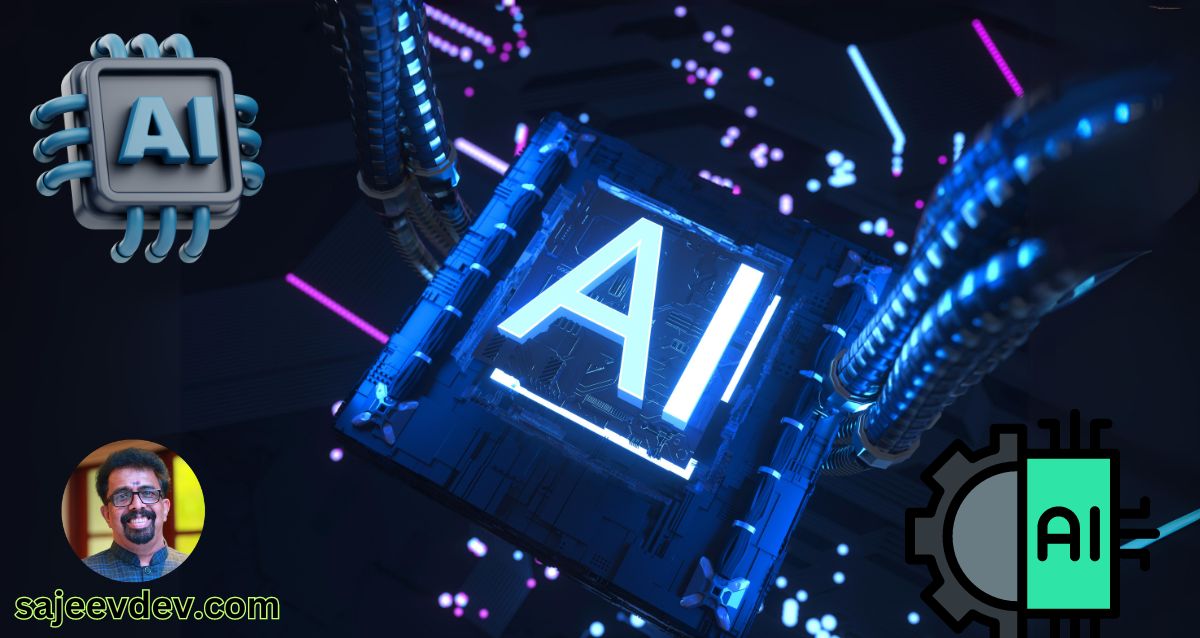Artificial Intelligence (AI) refers to the simulation of human intelligence in machines that are programmed to think, learn, and make decisions autonomously
Artificial Intelligence (AI) refers to the simulation of human intelligence in machines that are programmed to think, learn, and make decisions autonomously. At its core, AI encompasses a variety of technologies and methodologies, ranging from machine learning and natural language processing to robotics and image recognition. The purpose of AI is to enhance tasks, improve efficiencies, and contribute to fields such as healthcare, finance, transportation, and entertainment, which have tackled complex problems through automated solutions.
The rise of AI has been particularly notable within the last decade, driven by advancements in computational power, increased availability of data, and significant improvements in algorithms. Among the most revolutionary developments in this domain are generative models, such as ChatGPT, which utilize deep learning techniques to produce text that resembles human conversation. These models showcase AI’s potential to generate creative content, assist in customer service, and enhance user experiences across various platforms.
The rapid advancement of AI technologies has garnered widespread attention, underscoring the capability of these systems to perform tasks previously considered exclusive to human intellect. As organizations adopt AI solutions, the demand for efficiency and innovation escalates. However, this exponential growth raises critical ethical concerns, questioning the implications of machine-made decisions and the transparency of algorithms that underpin these systems. Understanding the ethical landscape of AI is crucial, given its increasing integration into societal frameworks and the potential impact on individual rights, privacy, and employment.
As AI continues to evolve, it is imperative to explore not only the technical specifications and advancements but also the broader ethical considerations that accompany these innovations. The dialogue surrounding AI ethics must address the potential risks and challenges that may arise, ensuring that the benefits of AI technologies are realized responsibly and equitably.
Ethical Concerns Surrounding AI Technologies
The rapid advancement of artificial intelligence (AI) technologies has ushered in significant ethical concerns that merit thorough examination. One of the foremost issues is the invasion of privacy that increasingly pervades our digital lives. As AI systems gather, analyze, and leverage massive amounts of personal data to enhance their functionalities, individuals often unknowingly grant access to their private information. This can lead to unauthorized surveillance and the potential misuse of personal data, raising alarm regarding individual privacy rights and governmental regulations.
Another critical concern is algorithmic bias, which highlights how AI systems can perpetuate discrimination. Due to their reliance on historical data, AI algorithms often replicate and even amplify existing societal biases. For example, if an AI system is trained on datasets reflective of biased human decisions, the results will inherently disadvantage certain demographic groups. This raises profound ethical questions about the fairness and equity of AI applications in various domains such as hiring, law enforcement, and loan approvals, thus potentially exacerbating inequalities in society.
Accountability in decision-making processes also presents a significant challenge with AI integration. As these systems assume roles traditionally held by human decision-makers, it becomes increasingly difficult to determine who is accountable for the outcomes generated. When an AI algorithm makes a decision that negatively affects individuals, identifying the responsible party can be convoluted, creating a gap in accountability. This lack of clarity not only undermines public trust in technology but also complicates the implementation of legal frameworks to address potential wrongdoing.
Overall, these ethical concerns serve as critical reminders of the importance of integrating ethical considerations into AI development. As the technology continues to evolve, prioritizing ethical frameworks will be essential to ensure that AI technologies serve society positively and equitably.
The Privacy Paradox: Balancing Innovation and Confidentiality
The rapid evolution of artificial intelligence (AI) technologies has sparked significant advancements across various sectors. However, this progress raises critical concerns regarding the privacy of users and the ethical implications of data collection. As businesses and governments increasingly rely on AI systems, balancing innovation with confidentiality becomes essential. The paradox lies in leveraging vast amounts of personal data to drive technological growth while safeguarding individual privacy rights.
Data collection is at the core of AI functionality, enabling systems to learn, adapt, and provide personalized experiences. Yet, the means by which data is obtained often lead to ethical dilemmas. For instance, companies may engage in extensive surveillance practices to gather user information, often without transparent consent. This raises pertinent questions about the adequacy of existing data protection laws and whether they sufficiently address the complexities of modern data usage. Privacy regulations, such as the General Data Protection Regulation (GDPR) in Europe, attempt to set boundaries by mandating explicit consent and outlining the rights of individuals regarding their data.
The issue becomes more compounded as AI technologies evolve. The sophistication of algorithms may inadvertently lead to biases or unauthorized use of data, further complicating ethical considerations. Users may find themselves in a vulnerable position, with their privacy rights seemingly at odds with the promise of innovation. As such, companies must seek to strike a balance between harnessing user data for technological advancements and respecting user autonomy and confidentiality.
Governments and organizations are now grappling with establishing ethical frameworks that ensure transparency, accountability, and user consent in AI applications. By navigating these complexities, they aim to cultivate a relationship of trust and respect with users. Addressing the privacy paradox is crucial not only for the ethical deployment of AI but also for fostering a sustainable technology landscape that prioritizes the rights of individuals.
Job Displacement: AI’s Impact on Employment
The rise of artificial intelligence (AI) technologies has brought about significant advancements across various sectors, yet it has also raised concerns regarding job displacement. As machines and software become increasingly capable, they pose a threat to numerous positions traditionally performed by humans. Industries such as manufacturing, transportation, and customer service are among the most susceptible to this shift, owing to the ability of AI to automate tasks efficiently.
In manufacturing, for instance, robots and intelligent systems can perform assembly line duties with precision and speed, leading to a reduction in the need for human labor. Similarly, the transportation sector may see a decline in driving jobs as autonomous vehicles gain traction. Customer service roles are also at risk, with AI-powered chatbots increasingly handling inquiries that once required human interaction, consequently diminishing the demand for human agents.
The implications of job displacement extend beyond individual job loss; they pose broader socio-economic challenges. Areas with a heavy reliance on certain industries may experience significant economic downturns, exacerbating income inequality as workers struggle to transition to emerging fields. Moreover, the effects of AI on employment can contribute to a growing skills gap, where displaced workers find they lack the requisite skills for available positions in a rapidly evolving job market.
Addressing these challenges necessitates a proactive approach focused on workforce retraining and reskilling initiatives. Governments, educational institutions, and organizations must collaborate to equip workers with the tools and knowledge needed to thrive in an AI-driven economy. Emphasizing lifelong learning and adaptability in the workforce can mitigate the adverse effects of job displacement and foster a smoother transition into a future where AI technologies are pervasive.
Regulatory Responses to Ethical AI Use
The rapid advancement of artificial intelligence (AI) technologies has prompted a range of regulatory responses aimed at ensuring their ethical deployment across various sectors. Governments and organizations worldwide are initiating regulatory frameworks that focus not only on managing the risks associated with AI but also on promoting innovation while safeguarding public interests. In this endeavor, several proposed regulations have emerged, each aiming to address specific ethical dilemmas presented by AI systems.
One significant approach has been the creation of ethical guidelines, which outline best practices for the development and use of AI. These frameworks prioritize transparency, accountability, and inclusivity, providing a roadmap for stakeholders involved in AI deployment. For instance, the European Union has proposed the AI Act, which seeks to classify AI systems based on their risk levels and impose stricter requirements on high-risk applications, such as those used in critical areas like healthcare and law enforcement.
Furthermore, collaboration among various stakeholders is crucial for shaping effective AI policies. Governments, private sector entities, academia, and civil society must work in concert to develop comprehensive and adaptive regulatory measures. This collaboration is essential not only for establishing regulations but also for fostering an environment where ethical AI development can thrive. Engaging diverse perspectives ensures that regulations account for varying societal values and ethics.
International cooperation is also a key factor in the governance of AI technologies. As AI systems know no borders, a unified approach is necessary to address common challenges and prevent regulatory fragmentation. Initiatives such as the Global Partnership on Artificial Intelligence (GPAI) aim to enhance international dialogue and collaboration on AI governance, promoting ethical AI deployment worldwide.
In conclusion, the evolving landscape of artificial intelligence necessitates a multifaceted regulatory approach. By promoting ethical frameworks, fostering stakeholder collaboration, and encouraging international cooperation, we can navigate the complexities of AI governance and pave the way for responsible AI innovation.
Case Studies in AI Ethics: Lessons Learned
The deployment of artificial intelligence across various sectors has yielded a diverse array of outcomes, both positive and negative. Understanding these case studies is crucial for informing future practices in ethical AI development. One notable example is the AI-driven recruitment tool developed by a leading tech company. The system was designed to streamline the hiring process, utilizing algorithms to filter and rank resumes. However, it was discovered that the AI inadvertently favored male candidates over female ones, as it was trained on historical data reflecting past hiring decisions biased against women. This incident highlights the importance of ensuring that training datasets are representative and free from bias—an essential lesson for organizations developing AI systems.
Another case study involves the use of facial recognition technology by various law enforcement agencies. While this technology can enhance public safety, instances of its misuse have raised significant ethical concerns. For example, in several high-profile cases, the technology was utilized without adequate oversight, leading to wrongful arrests and potential violations of civil liberties. This not only eroded public trust but also accentuated the need for transparent policies governing the use of facial recognition. It underscores the necessity of implementing ethical frameworks to govern AI technologies and ensure accountability in their deployment.
Conversely, the healthcare sector has witnessed positive applications of AI. AI tools have been used to assist in diagnosing diseases quickly and accurately, significantly improving patient outcomes. For instance, an AI system developed for cancer detection demonstrated higher accuracy rates than traditional methods. This success story illustrates how ethical considerations can lead to innovations that have a profound impact on public health. By analyzing real-world applications of AI, we can derive valuable lessons that highlight the dual-edged nature of this technology. It becomes evident that ethical considerations must be integral throughout the development and deployment of AI systems, ensuring they serve society positively and equitably.
The Role of Experts and Stakeholders in Responsible AI
The evolution of artificial intelligence (AI) necessitates active participation from various experts and stakeholders to ensure ethical practices are in place. Ethicists play a crucial role in advising on the moral implications of AI systems, guiding the development of frameworks that underscore human rights and societal values. Their insights are vital in identifying potential biases and unintended consequences that can arise from AI algorithms. By working closely with technologists, ethicists can foster an environment where technology and morality coexist harmoniously.
Technologists, on the other hand, are tasked with the practical implementation of AI systems. Their expertise is fundamental in creating algorithms that adhere to ethical standards while remaining innovative. When technologists collaborate with ethicists, the outcome can be a more robust AI that not only performs efficiently but also aligns with ethical guidelines. This synergy is crucial for developing AI tools that are fair, accountable, and transparent.
Industry leaders also play a pivotal role in promoting responsible AI within their organizations. They can implement policies that prioritize ethical considerations in AI development processes. Through strong governance, these leaders set the tone for organizational culture, emphasizing the significance of ethical AI and encouraging their teams to adhere to best practices. Industry-wide collaborations can multiply these efforts, leading to the establishment of standards that all players in the AI field can follow.
The public’s involvement cannot be overlooked either. Citizen engagement contributes to a democratic approach in shaping AI policies, ensuring that diverse perspectives are considered. Public forums, surveys, and community discussions allow stakeholders to voice their concerns and expectations surrounding AI usage. This collective feedback can inform ethical regulations, ensuring that AI serves the public good while maintaining trust in its applications.
Future Directions: Ethical AI and Societal Impact
The future of artificial intelligence (AI) is poised to bring about significant transformations across various sectors, including healthcare, finance, and transportation. However, as AI technology continues to evolve, it is imperative to address the ethical implications that accompany these advancements. Emerging trends in AI, such as increased automation, predictive analytics, and machine learning, necessitate a robust ethical framework to ensure that the societal impact is beneficial and equitable.
One of the pressing issues is the need for transparency and accountability in AI systems. As algorithms become more complex, understanding how they arrive at decisions is crucial for ethical scrutiny. This underscores the importance of developing guidelines that prioritize explainability, enabling stakeholders to comprehend the rationale behind AI-driven outcomes. Furthermore, organizations must implement measures to prevent biases that can arise from skewed training data, thereby ensuring that AI applications serve all segments of society fairly.
Another vital consideration is the role of regulatory bodies in overseeing AI deployment. Policymakers must engage in ongoing discussions with technologists, ethicists, and the public to establish comprehensive legislation that mitigates potential harms associated with AI usage. This collaborative approach can assist in navigating moral dilemmas, such as privacy concerns, surveillance, and the displacement of human labor through automation.
As we look toward the future, fostering a culture of ethical AI development is essential. This involves not only adhering to existing ethical standards but also continuously evolving them in response to technological advancements. Encouraging interdisciplinary research and open dialogue among various societal stakeholders will play a pivotal role in shaping an ethical AI landscape that positively impacts society and optimally harnesses the transformative power of AI technologies.
As artificial intelligence continues to evolve and integrate into various aspects of society, it is imperative to navigate the ethical landscape that accompanies these advancements
As artificial intelligence continues to evolve and integrate into various aspects of society, it is imperative to navigate the ethical landscape that accompanies these advancements. The discussions held throughout this article have highlighted the pressing need to address ethical concerns such as bias, accountability, and transparency in AI systems. These critical issues underscore the importance of ensuring that AI technology is developed and implemented responsibly, with a focus on human well-being.
Engaging in ongoing dialogue among stakeholders—including technologists, ethicists, policymakers, and the general public—is crucial for fostering a balanced approach to AI ethics. Such collaboration can facilitate a deeper understanding of the implications of AI technologies, enabling the identification of potential risks and ethical dilemmas. It is essential for all parties to actively participate in discussions surrounding the ethical standards that govern AI development, ensuring that these standards evolve in tandem with the technology itself.
Moreover, it is vital to acknowledge that ethical considerations should not be an afterthought but rather an integral aspect of the design and application processes of AI systems. This requires a proactive stance, where ethical assessments are embedded within the lifecycle of AI technologies, from conception through deployment. By prioritizing ethical frameworks, we can better align technological advancements with societal values and prevent unintended negative consequences arising from unregulated or poorly designed AI solutions.
In conclusion, advancing artificial intelligence must be approached with a balance between innovation and ethical responsibility. Continuous engagement and interdisciplinary collaboration will enable us to craft a future where AI benefits society while upholding ethical standards, ultimately leading to a technological landscape that promotes the greater good.









